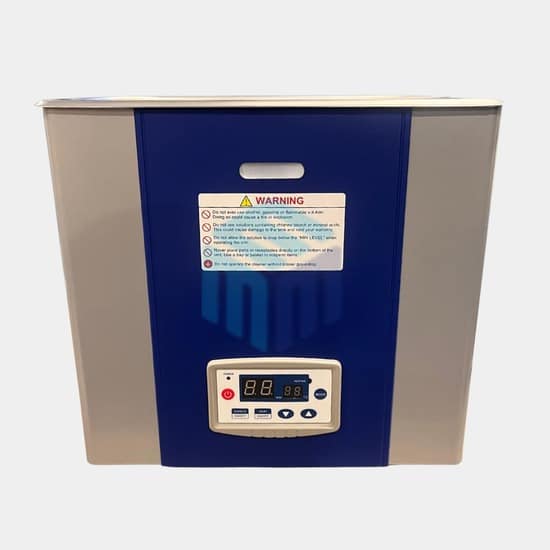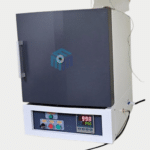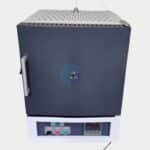Ultrasonic cleaners have become essential tools across a wide range of industries due to their powerful, precise, and non-damaging cleaning capabilities. Utilizing high-frequency sound waves to create microscopic bubbles, these devices effectively remove contaminants from even the most intricate and delicate surfaces. Whether it’s in laboratories, medical facilities, electronics manufacturing, or jewelry cleaning, ultrasonic cleaners offer unmatched efficiency and reliability. In this blog, we’ll dive into the key benefits of using ultrasonic cleaners and explore the diverse applications where they are making a significant impact—helping professionals save time, enhance results, and maintain the highest standards of cleanliness.
Benefits of Ultrasonic Cleaners
Ultrasonic cleaners offer deep, efficient cleaning by reaching into tiny crevices that traditional methods can’t access—all without damaging delicate items. Here are the benefits of ultrasonic cleaners:
- Efficient Cleaning: Ultrasonic cleaners use high-frequency sound waves to create microscopic bubbles that implode, providing a powerful scrubbing action on a microscopic scale. This allows for thorough cleaning of intricate parts and hard-to-reach areas.
- Time-Saving: The cleaning process is much faster compared to traditional methods. Items that might take hours to clean manually can be cleaned in minutes with an ultrasonic cleaner.
- Non-Destructive: Ultrasonic cleaning is gentle and non-abrasive, reducing the risk of damage to delicate or sensitive items.
- Environmentally Friendly: Ultrasonic cleaners often require less water and fewer harsh chemicals compared to other cleaning methods, making them more eco-friendly.
- Versatility: They can clean a wide variety of materials, including metals, plastics, ceramics, and glass.
- Consistent Results: The cleaning process is highly repeatable, providing consistent and reliable results every time.
Applications of Ultrasonic Cleaners
Ultrasonic cleaners are widely used in laboratories, medical and dental clinics, jewelry shops, electronics repair, and manufacturing industries. They effectively clean precision instruments, delicate components, and intricate items by removing contaminants without causing damage. Here are the applications of ultrasonic cleaners:
- Medical and Dental: Ultrasonic cleaners are widely used to clean surgical instruments, dental tools, and other medical devices. They ensure that all contaminants, including blood, saliva, and tissues, are thoroughly removed. For healthcare facilities looking to maintain high standards of hygiene, partnering with a reliable ultrasonic cleaner supplier is essential.
- Jewelry Cleaning: Jewelers use ultrasonic cleaners to remove dirt, grime, and polishing compounds from intricate jewelry pieces, restoring their shine and brilliance.
- Automotive and Aerospace: These cleaners are used to clean engine parts, carburetors, fuel injectors, and other components in the automotive and aerospace industries. They effectively remove grease, oil, and other contaminants.
- Electronics: Ultrasonic cleaners are employed to clean electronic components such as printed circuit boards (PCBs) and delicate electronic parts, ensuring they are free of dust, flux residues, and other contaminants.
- Optical: Optical manufacturers use ultrasonic cleaners to clean lenses, optical filters, and other precision optical components, ensuring they are free of dust and smudges.
- Manufacturing: In various manufacturing industries, ultrasonic cleaners are used to clean parts and tools, ensuring they are free of contaminants before further processing or assembly.
- Laboratories: In laboratories, ultrasonic cleaners are used to clean laboratory glassware, pipettes, and other scientific instruments, ensuring they are free of residues that could interfere with experiments.
- Restoration: Ultrasonic cleaners are also used in the restoration of antiques, artworks, and other valuable items, as they can gently remove dirt and grime without damaging the items.
By utilizing ultrasonic cleaning technology, industries can achieve higher cleanliness standards, improve efficiency, and extend the lifespan of their tools and components.
Read also: Types of Ultrasonic Cleaners
Conclusion:
Ultrasonic cleaners combine powerful cleaning performance with gentle care, making them an invaluable tool across a wide range of industries. Their ability to deliver consistent, thorough results while saving time and effort highlights their practical benefits. Whether used in labs, healthcare, or manufacturing, ultrasonic cleaners offer a reliable, efficient solution for maintaining cleanliness and quality in even the most delicate or complex items.
M-Kube Enterprise is an Australian company catering customized laboratory products, laboratory consumables, and laboratory solutions in Australia, India, the USA, New Zealand, Singapore, Malaysia, South Korea, Dubai, the Philippines, Indonesia, and Vietnam.






